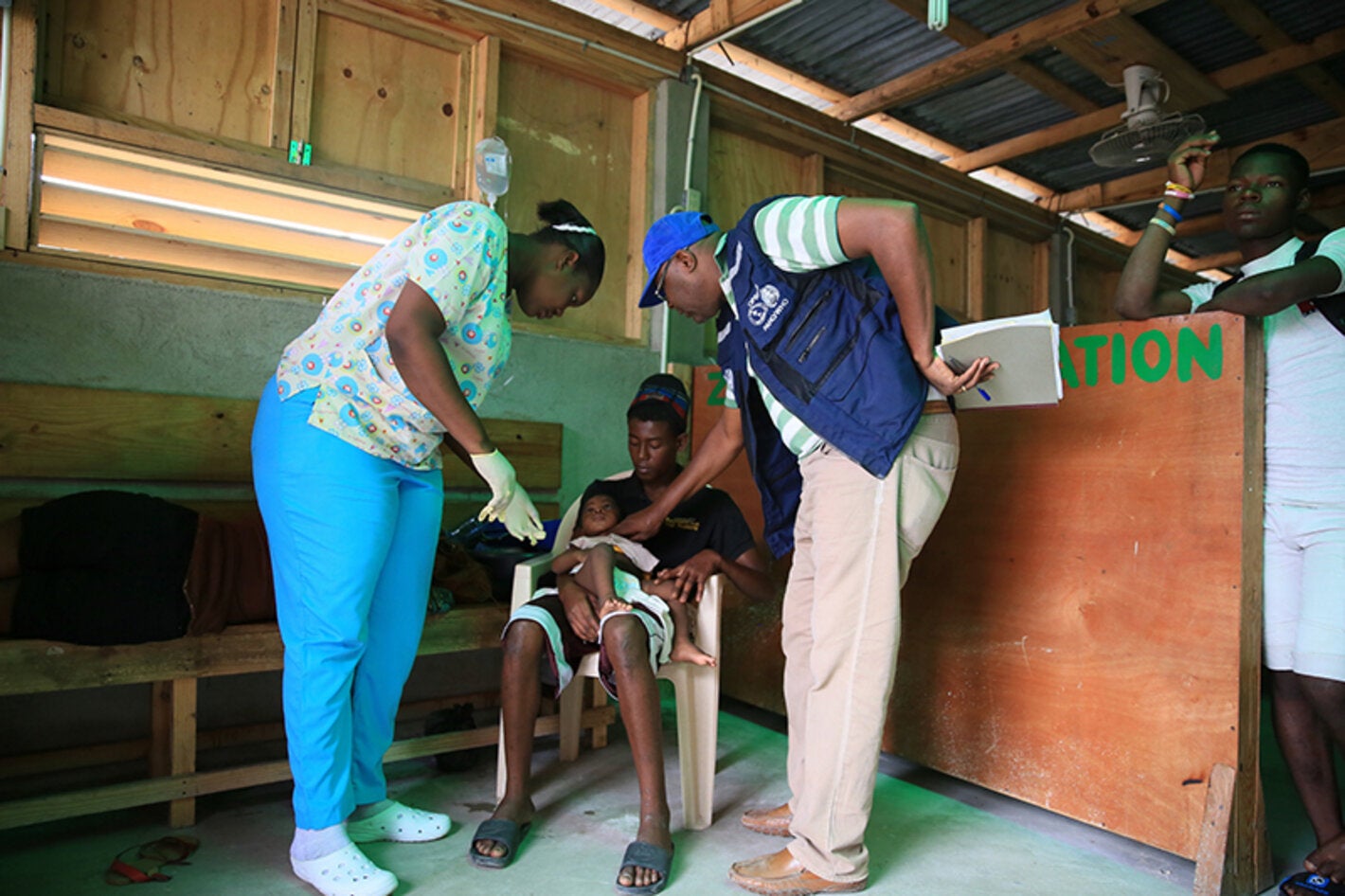
Port-au-Prince, Nov. 3, 2016 (PAHO/WHO)-Haiti needs support to restore and rebuild its health services at various levels, ranging from cholera treatment centers to community health centers to major hospitals, according to Dr. Jean-Luc Poncelet, the Pan American Health Organization/World Health Organization (PAHO/WHO) representative in Haiti.
In the areas of the South most affected by Hurricane Matthew, "The government faces challenges in restoring health facilities" in affected areas and urgent repairs to restore functionality have been identified." In Sud Department, 28% of health facilities sustained severe damage and 8% are closed, while in Grand'Anse, 43% of health facilities were severely damaged and 7% are closed. Of the 74 cholera and acute diarrhea treatment facilities in Haiti, 34 are fully functional, while 40 sustained various levels of damage.
Restoring health services to a functional level requires not only fixing structures, but providing electricity and water and sanitation, as well as helping many health workers who themselves have been severely affected by the hurricane's destruction, according to the Haiti Ministry of Public Health.
The Ministry is responding to the outbreak, with the support of many NGOs and other partners, but additional support is crucial to make damaged health facilities operational again, Poncelet said.
"We are grateful for the support we have received from the European Commission, from USAID, France, Holland, Spain, Canada, Andalusia and Botswana," Poncelet noted. "The major needs are to renovate existing health structures with durable repairs, to increase humanitarian assistance to rural areas, and to improve water quality and sanitation," he added.
The latest figures from the Haitian government show that 175,509 Haitians are still living in shelters, while more than 1.4 million people are in urgent need of humanitarian assistance.
PAHO supported the Ministry of Health in preparing a Post Disaster Needs Assessment and is working to implement it with Haiti's Ministry of Planning and External Cooperation. PAHO/WHO teams identified five priority areas of action for the health sector, estimating that $9,050,000 in emergency funding is needed to carry out essential activities. These priorities are: 1) Restore health care delivery capacity and access to health services in the most affected areas; 2) Increase epidemiological surveillance to support early detection and timely management of disease outbreaks; 3) Intensify vector-control and protective environmental health measures in impacted areas; 4) Ensure rapid and effective response to cholera outbreaks in affected communities; and 5) Support efficient coordination of humanitarian assistance and management of information to effectively address the most urgent humanitarian needs.
PAHO is working on these priorities and supporting the Ministry of Health in its efforts to deal with the major concern of cholera. A vaccination campaign is planned to start Nov. 8, targeting 820,000 people in 16 communes affected by Hurricane Matthew and that have reported cholera cases or deaths. To prevent additional cholera cases, which are likely to increase in the rainy season from now until December, it is also important to advance on water purification, health promotion, and sanitation at the same time.



